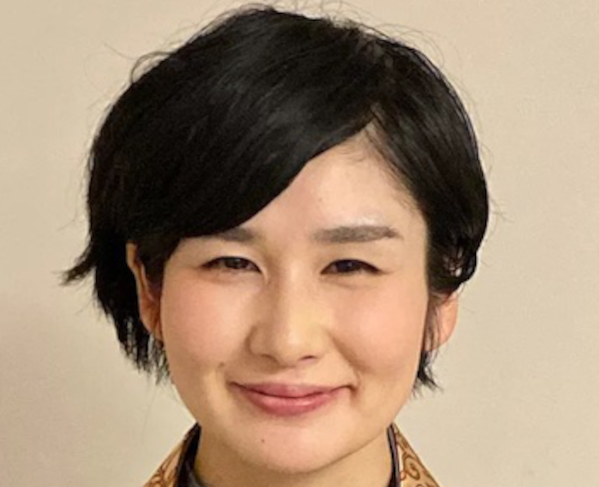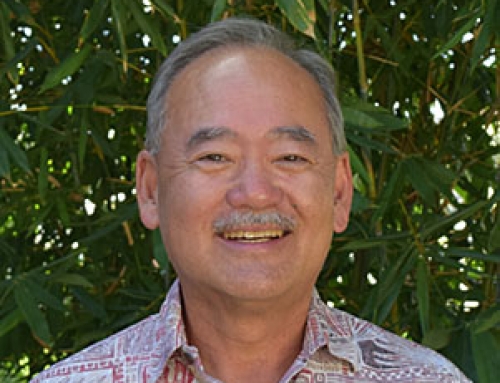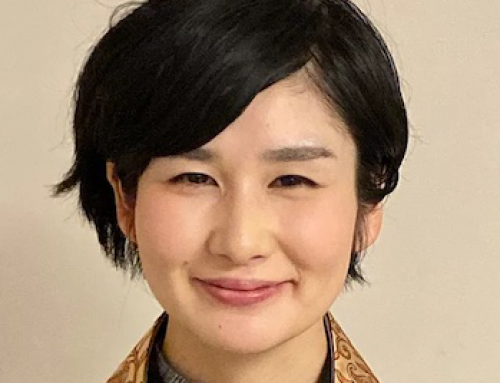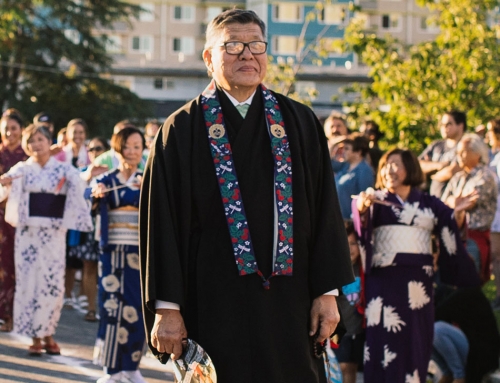In September, there is a special Buddhist service called “Ohigan.” ”O” is honorific word in Japanese. “Higan” literally means “the other shore”, the world of enlightenment, the Pure Land or Jōdo), the world of the Buddha free from the sufferings, which is also included in the name of our denomination, Jodo Shinshu. Higan services are observed twice a year during spring and autumn equinoxes when days and nights are of equal length. It marks the turning point of the seasons. According to the smaller sutra, Sakyamuni Buddha tells his disciple “Elder Sariputra: “if you travel westward from here, passing a hundred thousand Kotis* of Buddha lands. “ It tells us that it is still tremendously distant apart from our world. However, especially during this Higan period, it allows us to feel a little bit closer to the world of Buddha because we get literally closer to the direction of the Pure Land. And it is a suitable season for us to hear the teaching of the Pure Land or Higan because temperature is getting comfortable.
When we hear the word “country” or “world” today, we think they mean some special regions existing somewhere. So it is natural to make us pose a question of whether or not the Pure Land exists.
When I answer that Yes, there is, they say, “If you say there is, please show me. Then I will believe what you say.” If I answer “no,” then I am accused of being a “liar” like saying why do you call yourself Jodo Shinshu if there is no Pure Land (Jōdo)?
It’s actually not easy to answer correctly when we say either answer.
My teacher pointed out that this is not the way to ask the question.
When we say the “world” in Buddhism, it is not a question of the exact location of somewhere or whether it exists. We see the world differently depending on how our mind is. The good times pass in a blink of an eye. When we have a bad time, we feel it to be very long. In Buddhism, the world is a world of sensitivity or how we perceive the world. How do we perceive things?
In Amida Sutra, it says that there is water in the Pure, called water possessing the eight excellent qualities in the Pure Land.
Hearing this, one would think that the water would have special qualities because it is in the Pure Land.
These are the eight wonderful qualities of water that Amida Sutra actually states;
- crystal clarity,
- coolness,
- sweetness,
- lightness,
- softness;
- it is soothing to the stomach,
- free of impurities, and
- clears the throat.
However, I don’t think the properties listed seem very special. They describe the qualities of water that we know as a matter of course because I thought it should have some magical qualities. However, have we thought that water has eight wonderful qualities when we normally use or drink water?
When you turn on the faucet, water comes out. Did you feel something in the water that came out when you washed your face this morning? Were you impressed to see that water is coming out of the faucet again today!? I wasn’t at all because it is nothing special.
If you, like me, didn’t feel anything in particular when you saw the water, in essence, you are taking it for granted that water comes out of the faucet.
And suppose someone in our family forgot to turn off the tap and a little bit of water trickled out. If it was due to our own mismanagement, we would keep quiet and turn off the tap. But if a family member left the tap open, you would immediately hold them accountable, wouldn’t you? You could blame someone else saying; Who used it last? It’s a waste! It’s going to increase the water bill!” You would blame the family. Do you think it is a waste of water, or is it because it costs more money?
Do we perceive the eight excellent qualities in this water we use every day, just as the Buddha said?
Here what it shows is how the Buddha senses water.
In fact, those qualities are not necessarily important.
The meaning of the number eight is infinity. It means uncountable. In other words, water possessing the eight excellent qualities in the sutra is water that has infinite wonderfulness.
The water in the Pure Land, the water we drink all the time, and the water in the pond of blood in hell have the same nature, H2O. How do we each perceive water with the same properties?
Have we ever thought about how much this one drop of water does? I am ashamed this to say, but I have not. I think we are saying that it is a waste of water almost without thinking about it, but only from an economic value or environmental perspective. It is the Buddha’s heart that can perceive water with extremely rich sensitivity, that sees through a drop of that water has countless wonderful functions.
How about our own lives? How do we see our own/ other’s lives? Do we judge the same living beings that have life as being above or below us, good or bad, useful or useless, and lift them up or discard them according to our own worldly value judgments? Amida Buddha’s gaze is not limited to water but has the wisdom to see the infinite splendor of all life.
By letting us know the Buddha’s immeasurable wisdom to illuminate everything, it tells us of our extremely dull sensibilities.
By being reflected upon oneself through the Buddha’s truth, it makes one realize the insincerity of one’s view of things and the dullness of one’s sensibility, which is hardly able to perceive things properly. It is the Buddha’s intention to liberate our senses to true richness by guiding us to the Pure Land.
*Koti:An ancient Indian numerical unit. The term appears in Buddhist sutras often as a factor of an astronomically large number describing an incomprehensible expanse of time or space.




